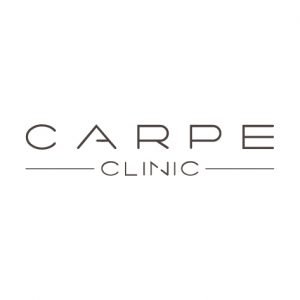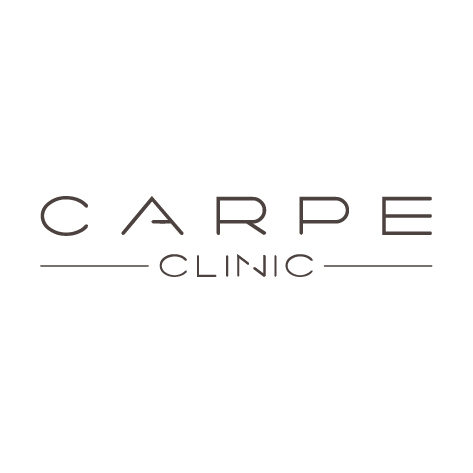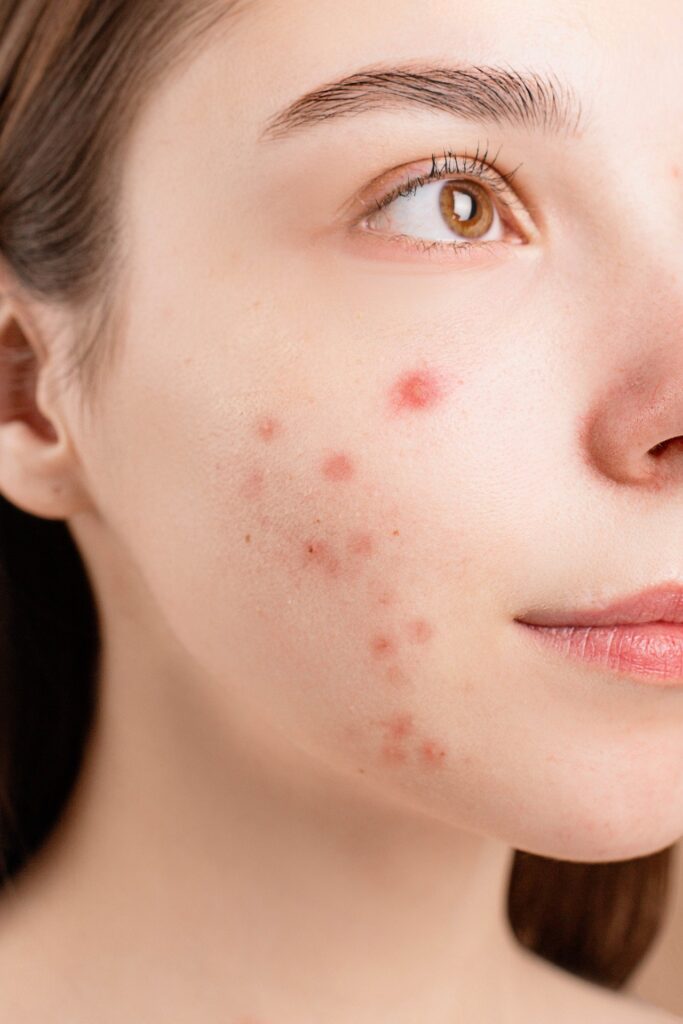What is acne?
Acne, also known as acne vulgaris, is a common skin condition that affects the skin of millions of people worldwide. It is a chronic condition of the sebaceous glands that usually manifests as pimples, blackheads and sometimes even cysts on the face, back, chest or other parts of the body. Although this condition is most common during puberty, it can also occur later in life. Not only can it cause physical discomfort, but it can also negatively affect the self-esteem and psychological health of affected individuals.
How do I recognize acne?
Recognizing acne is usually not difficult because of the prominent eruptions it causes. However, there are some symptoms that may indicate this, such as:
Pimples: These are small red bumps that often have white heads and are filled with pus. They can occur anywhere on the face, such as the forehead, chin, cheeks and nose, as well as other parts of the body.

Blackheads: Also called open comedones, these look like small black or yellow dots on the surface of the skin. Blackheads occur when pores become clogged with excess sebum and dead skin cells.
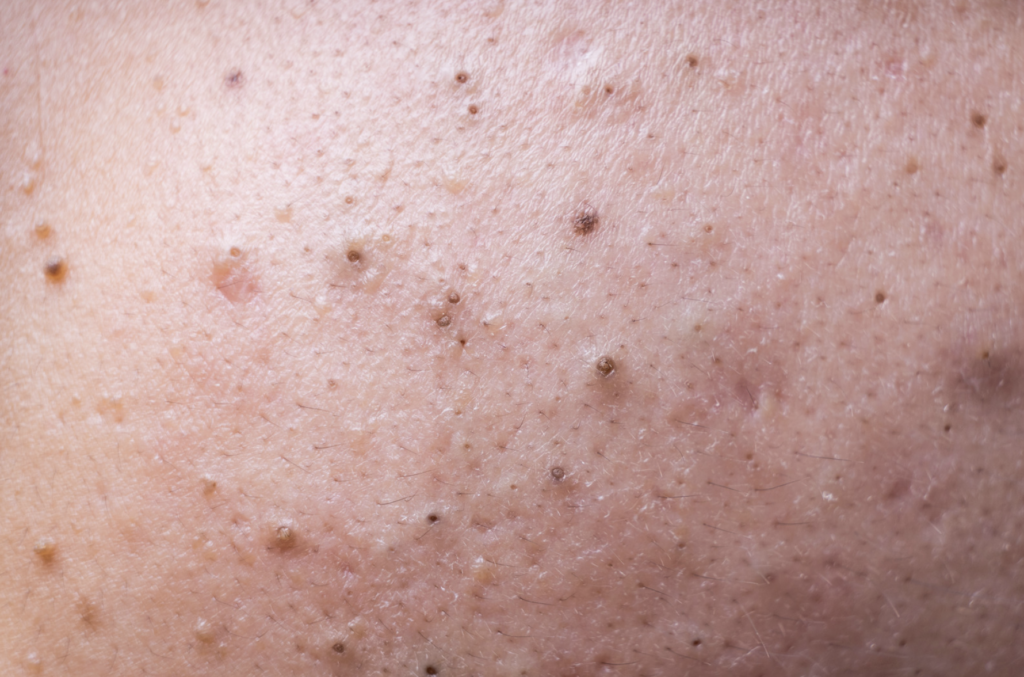
Papules: These are red, inflamed bumps with no head that can sometimes develop from blackheads or pimples.
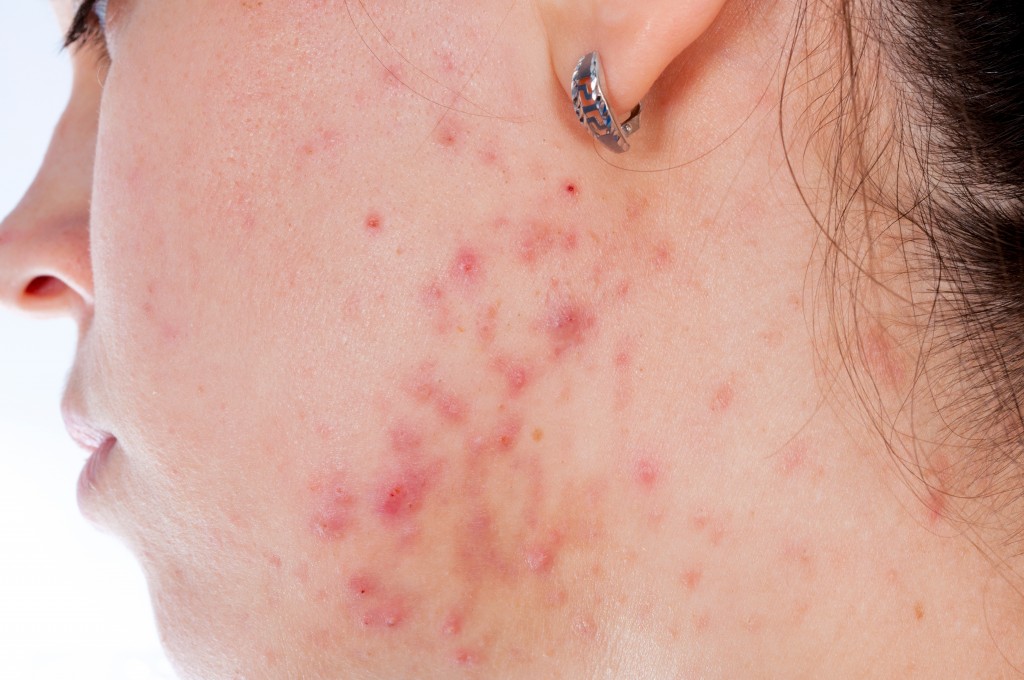
Pustules: Pustules are red bumps with pus on the surface caused by inflammation in the pores.
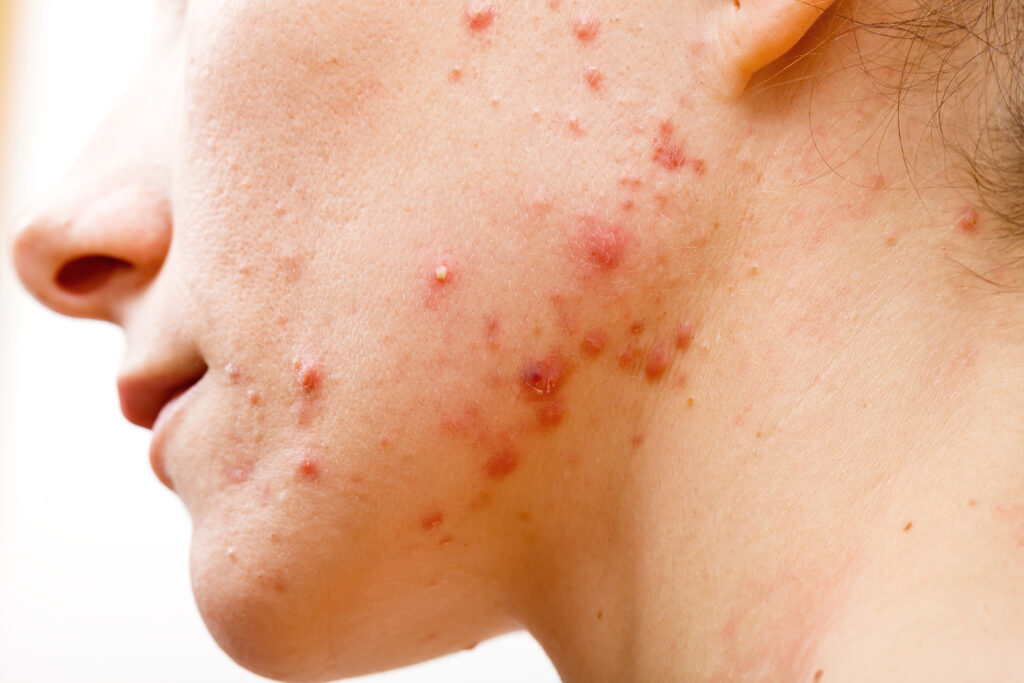
Cysts: Cysts are deeper, painful bumps that can lead to scarring. They are caused by severe inflammation of the sebaceous glands.
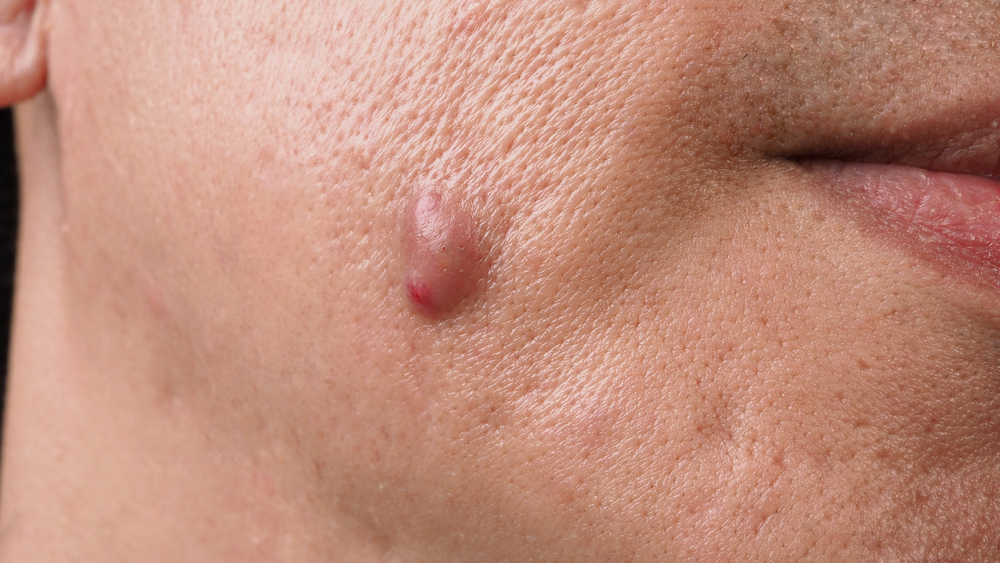
How does acne occur?
Acne develops due to a combination of factors that interfere with the normal functioning of the sebaceous glands. The sebaceous glands in our skin produce sebum, an oily substance that keeps our skin healthy and protects it from drying out. In people with acne, however, there is increased sebum production, causing the pores to become clogged with dead skin cells and sebum. This creates an ideal environment for bacteria, such as Propionibacterium acnes, to grow. These bacteria cause inflammation and irritation, leading to the characteristic pimples and blackheads.
Some factors can contribute to the development of acne:
Hormones: During puberty, both boys and girls undergo hormonal changes that can increase sebum production. Women may also experience hormonal fluctuations during their menstrual cycle, pregnancy or menopause, which can exacerbate acne.
Genetics: Acne can also have a genetic component, meaning that people whose family members have had acne are at greater risk of developing it as well.
Stress: Stress can disrupt the body’s hormone balance and promote inflammation, which can worsen acne.
Food: Although food does not directly cause acne, certain foods can make the condition worse. Foods with a high glycemic index, such as sugary snacks and processed carbohydrates, can cause blood sugar levels to rise rapidly, which can promote inflammatory responses in the body and exacerbate acne. Dairy products are also sometimes associated with acne breakouts in some individuals.
Acne and nutrition
The relationship between acne and nutrition is a hotly debated topic. Although there is no direct cause-and-effect relationship between certain foods and acne, some studies suggest that certain dietary patterns may play a role in causing or exacerbating acne.
A diet rich in foods with a high glycemic index, such as sugar, refined carbohydrates and processed foods, can cause blood sugar levels to rise rapidly. This can lead to an increase in insulin and other hormones, which in turn can stimulate sebum production and promote inflammatory reactions in the body. These inflammations can aggravate acne.
Dairy products may also play a role in the development of acne. Some studies suggest that dairy products contain hormones that may affect sebum production and worsen the condition. In addition, certain dairy products, such as skim milk, may have a higher glycemic index than whole milk, which may increase the risk of acne.
Although there is evidence of a link between diet and acne, it is important to emphasize that diet is not the only factor causing the condition. Heredity, hormonal fluctuations, stress and skin care habits all play a role in the development of acne.
What forms of acne exist?
There are different types of acne that vary in severity and symptoms. You can read some of the most common forms below.
Acne Vulgaris
This is the most common form and is characterized by pimples, blackheads and sometimes pustules. Acne vulgaris can range from mild to moderate severity.
Severe Acne
In this type of acne, deep cysts and nodules are present that can cause scarring. This can have a negative impact on the quality of life and self-confidence of the person affected.
Acne Conglobata
Acne conglobata is a rare and severe form that forms large abscesses and cysts, often on the back, buttocks and chest. This form of acne can be very painful and can leave significant scarring.
Acne Inversa
Acne inversa, also known as hidradenitis suppurativa, is a chronic inflammatory disease characterized by abscesses, inflammation and scarring in areas with hair follicles, such as the armpits, groin area, under the breasts and in the genital region. It can cause great pain and discomfort and can have serious effects on the quality of life of those affected.
Acne on the back (chest)
Acne is not limited to the face, but can also occur on other parts of the body, such as the back and chest. This form of acne can be difficult to treat because of its hard-to-reach location and the risk of scarring.
Where on the body does acne occur?
Acne can manifest itself on several parts of the body, but the most common area is the face. Other areas where it is common are:
Back: Acne on the back, also known as bacne, is common in people of all ages. It can range from mild pimples to severe inflammation and can be difficult to treat because of its hard-to-reach location.
Chest: Pimples on the chest are common and can also leave scars. They can occur in both men and women.
Shoulders: Shoulder acne often occurs in people who sweat a lot or wear tight clothing. Friction can clog pores and cause acne.
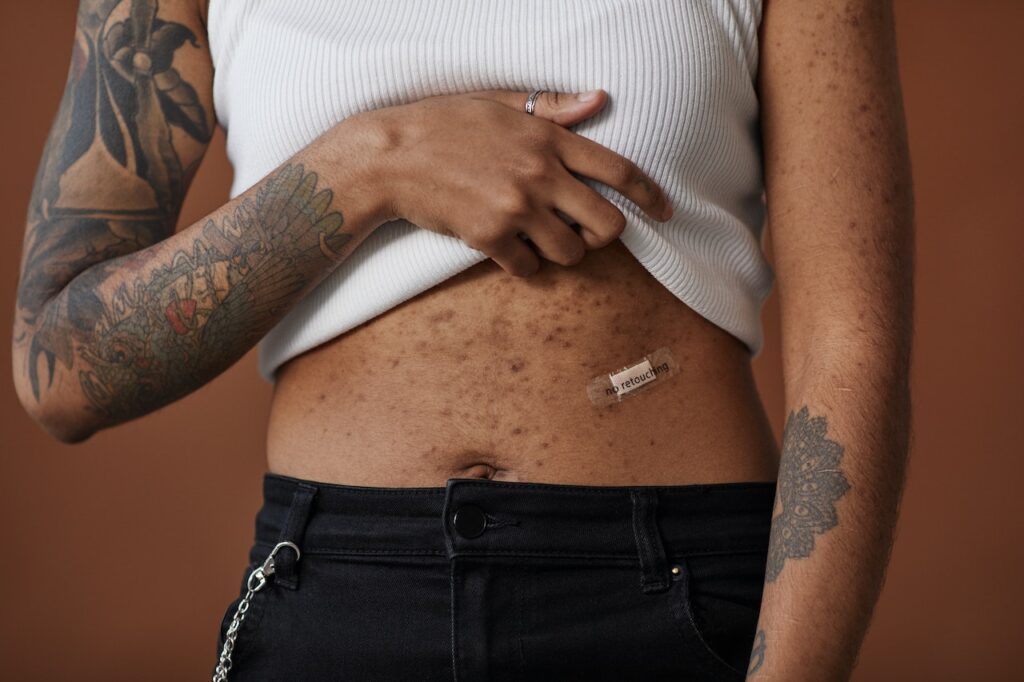
What can you do yourself?
While it is not always possible to prevent acne completely, you can do some things yourself against this condition to reduce and control it:
Cleanse your skin regularly, but not too often: It is important to keep your skin clean, but excessive washing can dry out the skin and actually increase sebum production. Use a mild cleanser and wash your face twice a day.
Avoid squeezing pimples: It may be tempting to squeeze pimples, but this can worsen inflammation and lead to scarring. Leave squeezing pimples to professional dermatologists.
Use noncomedogenic (non-clogging) skin care products and makeup: Products that do not clog pores can help prevent acne. Choose oil-free and non-comedogenic products.
Avoid touching your face with your hands: Our hands come in contact with many bacteria and dirt throughout the day. Touching your face can transfer these bacteria to your skin and cause inflammation.
Eat a healthy diet: Although food does not directly cause acne, a healthy diet can contribute to healthy skin. Eat plenty of vegetables, fruits and whole grains and limit consumption of sugar and dairy products.
Use active ingredients:Topical creams and gels with active ingredients such as benzoyl peroxide, salicylic acid or retinoids can help reduce pimples and blackheads. These types of creams and gels should only be used under the supervision of a physician.
Possible treatments for acne
For people with mild to moderate acne, self-care methods can often help. Topical creams and gels with ingredients such as benzoyl peroxide, salicylic acid or retinoids can help reduce pimples and blackheads. These active ingredients work by cleansing pores, regulating sebum production and reducing inflammation.
For more severe cases of acne, a dermatologist may consider other treatments, including:
Oral antibiotics: These drugs are prescribed to fight bacterial infections and reduce inflammation.
Hormonal therapy: Women may benefit from hormonal birth control pills, which balance hormones and regulate sebum production.
Isotretinoin: Isotretinoin is a very powerful drug used to treat acne that does not respond to other treatments. It is effective, but also has side effects and should only be prescribed by an experienced dermatologist.
Acne Triggers: what can aggravate acne?
Acne can be affected by a few factors that can promote its onset and exacerbation. It is important to be aware of these triggers so you can avoid or control them to keep your acne under control.
Hormonal fluctuations: Hormones play a crucial role in the development of acne, especially during puberty. But hormonal changes during the menstrual cycle, pregnancy or menopause can also exacerbate it. Regulating hormonal fluctuations can sometimes help reduce acne.
Stress: Stress can affect the hormone balance in the body. It can also contribute to worsening inflammation. Try reducing stress through relaxation techniques, such as yoga, meditation or taking up a hobby.
Food: Although food does not directly cause acne, certain foods can make the condition worse. Foods with a high glycemic index, such as sugary snacks and processed carbohydrates, can cause blood sugar levels to rise rapidly, which can promote inflammatory responses in the body and worsen the condition. Dairy products are also associated with acne breakouts in some individuals. It is important to observe how your skin reacts to foods and make adjustments in your diet if necessary.
Cosmetics and skin care products: The use of comedogenic (pore-clogging) cosmetics and skin care products can contribute to the development of acne. Choose noncomedogenic products and always check the ingredient list before applying new products to your skin.
Environmental factors: Exposure to certain environmental factors, such as pollution and heavy oils, can clog pores and worsen the condition. Be sure to cleanse your skin properly after exposure to such environmental factors.
Acne and scars
For some people, acne breakouts can result in scarring, especially in those who suffer from severe acne or who squeeze out pimples. Scars can cause permanent skin damage and negatively affect self-confidence. It is important to treat the condition and avoid squeezing pimples to prevent scarring.
Atrophic scars: These are scars that result in indented skin. They often arise after healing severe inflammation. Stimulating collagen production can help reduce atrophic scars.
Hypertrophic scars: These scars are just raised above the skin and may be itchy or painful. They are caused by an overproduction of collagen during the healing process. Hypertrophic scars can be treated with some medical procedures, such as laser treatments or corticosteroid injections.
Discoloration of the skin: After the disappearance of a pimple, discoloration of the skin, such as hyperpigmentation (dark spots) or hypopigmentation (light spots), may sometimes occur. These discolorations can often fade on their own, but they can also be treated with products that even out the skin, such as vitamin C serums or retinoids.
Prevention: Preventing scarring begins with treating acne breakouts carefully and non-aggressively. Avoid squeezing pimples, as this can damage the skin and cause scarring. Also, use products that soothe the skin and promote healing.
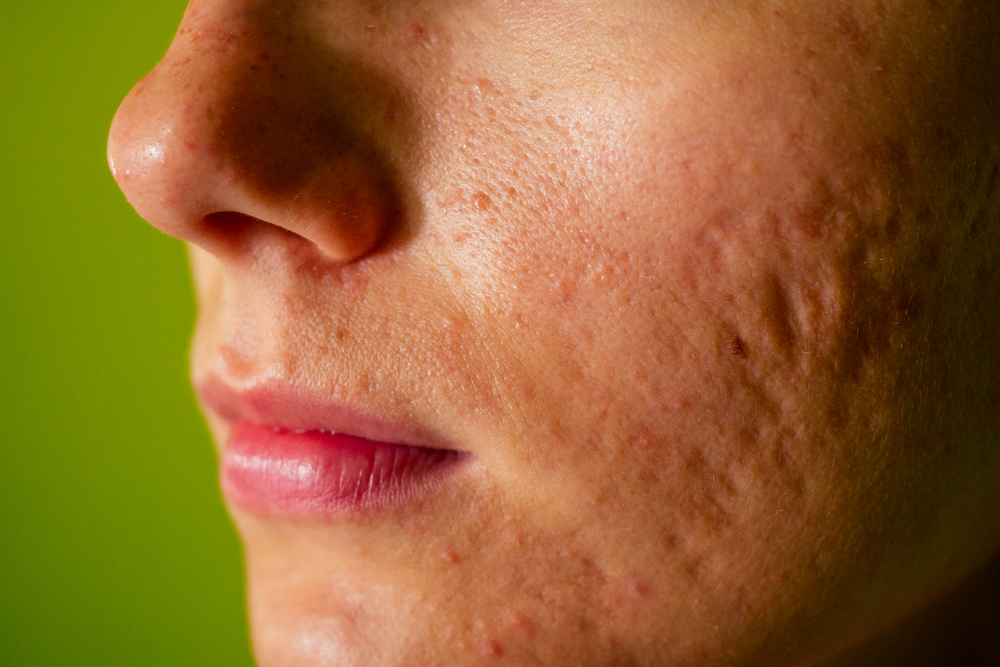
Prevention is better than cure
The saying “prevention is better than cure” also applies to acne. Although it cannot always be prevented, there are steps you can take against acne to reduce the likelihood of eruptions and keep your skin healthy.
Skin cleansing: Regular and gentle skin cleansing helps remove excess sebum, dirt and dead skin cells, preventing clogging of pores.
Hydration: Using a noncomedogenic moisturizer helps keep skin hydrated without clogging pores.
Diet: A healthy diet with plenty of vegetables, fruits and whole grains can contribute to healthy skin. So limit sugar and dairy products!
Stress management: Stress can worsen acne, so practicing relaxation techniques such as meditation, yoga or exercise can help lower stress levels.
When to seek professional help?
It is important to know when it is time to seek professional help for acne, especially if it does not seem to improve with self-care methods. Professional help can ensure that you get the right treatment for your specific skin condition.
Moderate to severe acne: If you suffer from moderate to severe acne that does not respond to self-care methods, it is advisable to consult a dermatologist. A dermatologist can help you choose the best treatment options, such as topical medications, oral medications or advanced treatment methods.
Scarring: If you already have scars, a dermatologist can help you choose the right treatments to reduce scarring, such as laser treatments or microdermabrasion.
No improvement with self-care: If you have tried self-care methods but seen no improvement, it is time to seek professional help. A dermatologist can thoroughly assess your skin and create a customized treatment plan.
Emotional impact: If acne is negatively affecting your self-confidence and emotional well-being, it is important to seek help. A dermatologist can not only treat it, but also offer support in dealing with its emotional impact.
Table of Contents
Make an appointment
Do you have questions?
Make an appointment at our clinic.
See also
Carpe Clinic is happy to help you!
If you suffer from acne that does not seem to respond to self-care methods, it is important to seek professional help. Carpe Clinic specializes in acne treatment and offers customized solutions to fight acne and reduce scarring.
Our experienced dermatologists and skin therapists will perform a thorough analysis of your skin and create a treatment plan specific to your needs. We understand how frustrating and impactful acne can be, and we are committed to helping you regain healthy, glowing skin and boost your self-confidence.
